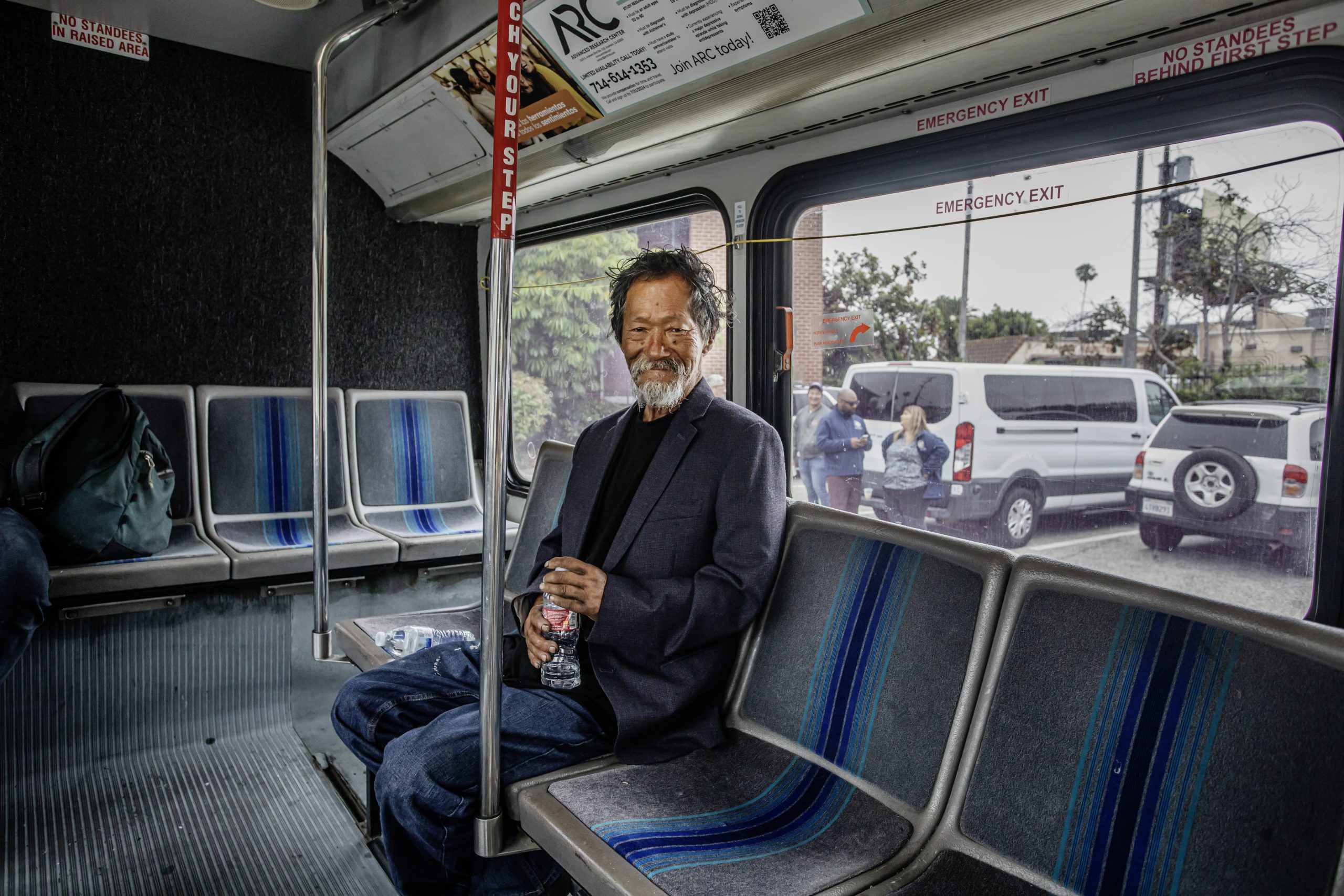Los Angeles Koreatown
From savior to saved:
The tragic tale of Pastor Lee
Korean Pastor Helped the Homeless
Until His Troubled Past Caught Up with Him
A Street Pastor’s Deadly Struggle in Koreatown
[Editor’s note: In Koreatown, Los Angeles, where hope and despair coexist on the same streets, the life of Pastor Lee Kang-won unfolded as both a beacon of light and tragedy. The Korea Daily’s investigative team documented Lee’s struggles until his untimely passing. This article has been expanded with additional reporting to provide a fuller picture of his life and impact.]
BY YEOL JANG, YOUNGNAM KIM
PHOTOGRAPHY AND VIDEOGRAPHY BY SANGJIN KIM
November 12, 2024
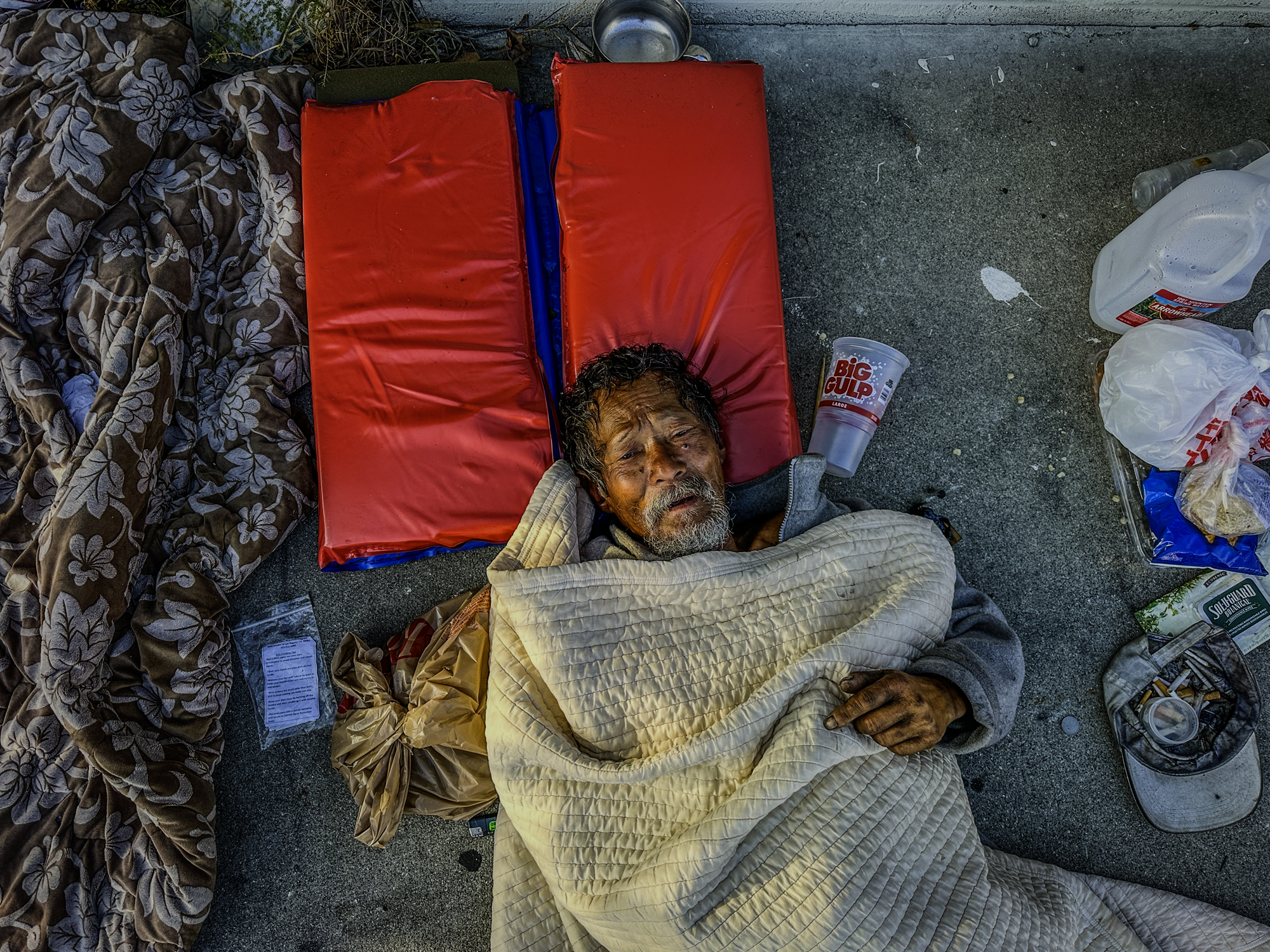
A Grim Discovery in Koreatown
Among the clusters of tents scattered around Koreatown, life is a series of daily battles for survival. One of those tents, tucked between two buildings, belonged to Pastor Lee Kang-won, a man known for his quiet dignity, even in the depths of his despair. Shin So-young, a woman living nearby in a donated tent, recalled the moment she realized something was wrong.
“There was this smell,” she said, her voice trailing off into memory. “It clung to the air for days.”
When the police finally arrived, the truth was revealed: her neighbor of nearly a year, Pastor Lee, was dead in early July. His body lay just feet away from Shin’s shelter, decomposing in silence.
“Death is a constant companion here,” Shin said. “Another soul lost. Just like that.”
Pastor Lee’s death went unnoticed for days. Deaths on the street like his are not unusual among Los Angeles’ homeless population.
Pastor Lee spent years working tirelessly to help those struggling with addiction and homelessness. Yet, despite his efforts, he became ensnared by the very fate he sought to prevent.
The Korea Daily’s investigative reporting team first met Pastor Lee on April 22. On that day, the team received a call from Rev. John Kim of St. James Church, who operates a shelter in Koreatown. Rev. Kim said that a different Korean American man had died on the streets.
The evidence of the tragedy had mostly been erased by the time the team arrived near LA Central Lutheran Church on W. 10th Street. The body of Ahn Tae-hong (65) had been taken to the morgue, leaving behind only an empty tent and a pool of blood he had vomited before passing. He passed away just two days after leaving Rev. Kim’s refuge.
Ahn had succumbed to the harsh reality of street life, his final moments marked by a violent expulsion of blood, an example of the serious health problems that often go unaddressed among the homeless.
Our investigative reporting team was walking near the tent where Ahn used to live. There, the team noticed an elderly man slumped over a folding chair. He, too, was homeless. Cautiously, the team approached and asked him about Ahn’s death.
The man mumbled a response, but it was difficult to make out his words. His few remaining teeth were in poor condition, which caused his speech to slur. His deeply wrinkled, sun-scorched skin, unkempt beard, and unfocused gaze revealed the toll of life on the streets.
The conversation didn’t flow smoothly. At one point, the man introduced himself.
“My name is Lee Kang-won,” he said.
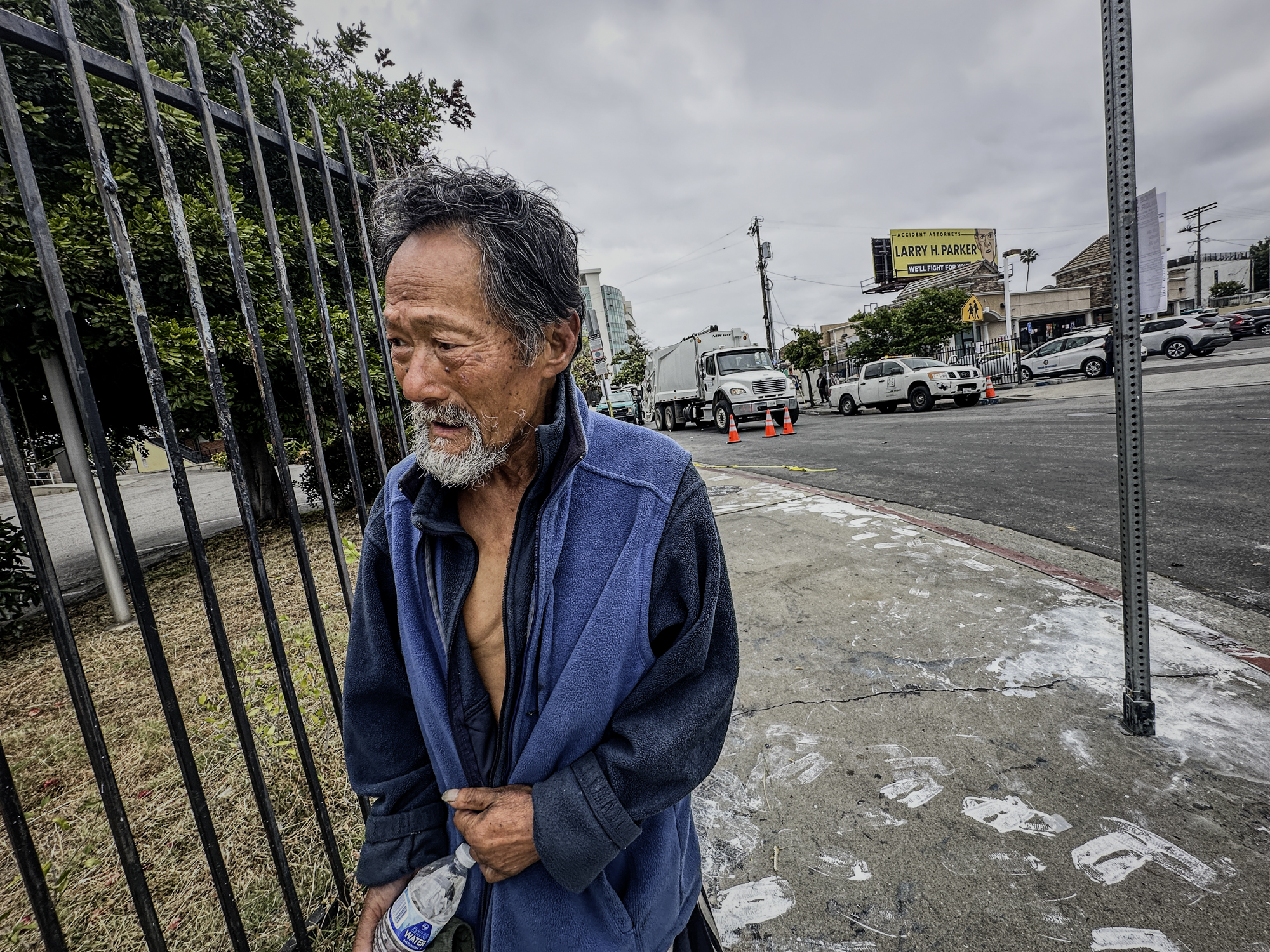
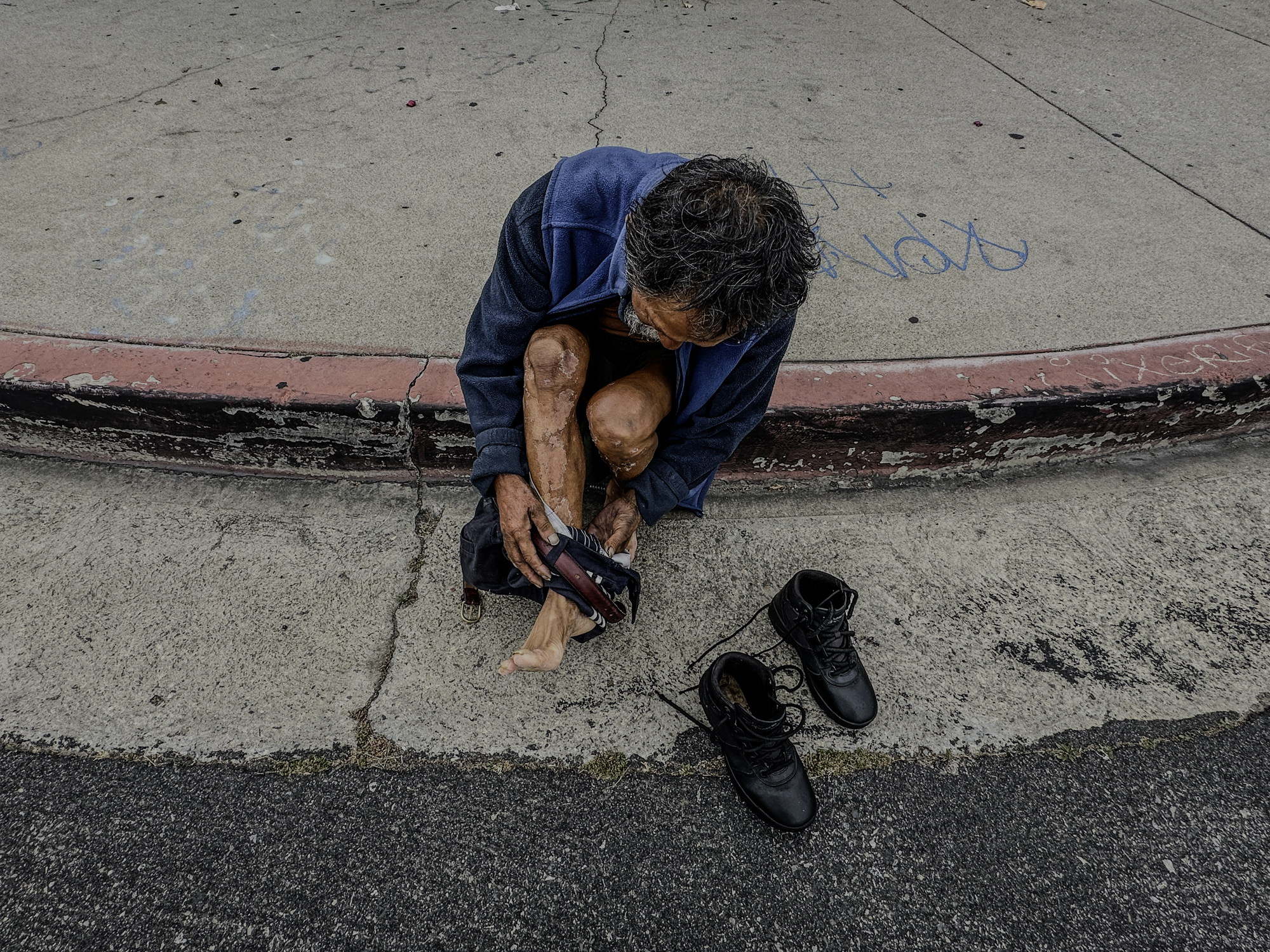
The team was taken aback. Lee’s name was once well-known among Korean-Americans in Los Angeles. The toothless man was Pastor Lee of Agape Mission House, who used to help the homeless and those struggling with drug addiction in Koreatown. His work had once been widely covered in the Korean-American media, which is why his name stood out so clearly.
Pastor Lee was a man who understood homelessness not from a distance but from personal experience. Lee was beloved for his deep compassion and commitment to those living on the streets.
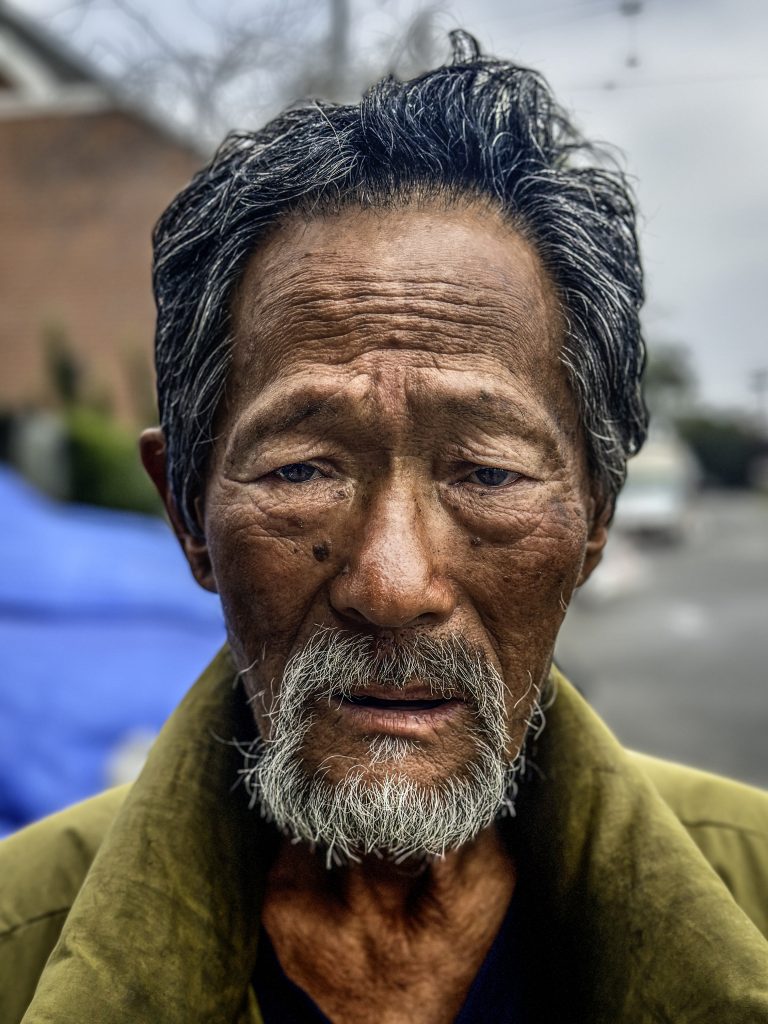
His work was remembered fondly by many, including Pastor Na Joo-ok of Wooltari Mission, another street outreach program organization. “Pastor Lee was a friend to me,” Na recalled. “His heart for the homeless and addicted was undeniable.”
Lee had a lasting impact on Kim Woo-sik, who now runs his own signboard business. “I met Pastor Lee at the lowest point in my life,” Kim said. “If not for his care, I wouldn’t have been able to quit drugs. I wouldn’t be here today.”
In the heart of Koreatown, where hopes for fresh starts are often dashed, Pastor Lee’s Agape Mission House in the 2200 block of South Hobart Boulevard once stood as a beacon of second chances. At its height, the shelter housed over 80 residents, playing host to lives pulled back from the edge of despair.
Pastor Lee’s success came from his deep, personal understanding of homelessness and addiction. A former drug addict himself, Lee recognized that for many of the homeless, government systems weren’t enough. What made the difference was empathy, especially from someone who had walked in their shoes.
Yet the very compassion that drove Lee’s mission ultimately contributed to its downfall. As the shelter expanded, it struggled to comply with city regulations. Agape Mission House was housed in Lee’s own home, and its transformation brought complaints from his neighbors, who were disturbed by the odors and noise that came with housing the troubled and displaced.
Agape Mission House’s Downfall
By 2014, the pressure on Agape Mission House had reached a boiling point. Authorities, including the LA Fire Department, Housing Department, LA County Department of Public Health, and the Department of Mental Health, responding to neighborhood complaints, launched an investigation into the shelter.
Lee was cited for multiple violations, including abusing residents and his mission came to an end. Korean-American media painted him as a fallen savior, but former resident Choi Kwang-ok offers a more sympathetic view. “Pastor Lee even started a kimbap [Korean seaweed rice rolls] business to support the shelter,” recalled Choi, who now helps out at Rev. Kim’s shelter.

“The Los Angeles City Attorney’s office and Korean-American community accused him of unlawfully confiscating his residents’ government allowances and mistreating some of them, but in reality, he sacrificed everything to keep the shelter running,” Choi argued.
After the shelter closed, Pastor Lee found himself homeless, cast out onto the streets where he had once ministered. His descent into homelessness illustrates the challenges that face those who work to alleviate urban poverty.
“After struggling with the indictment, my husband was walking at night and tripped over an exposed tree root,” said Lee Jung-hwan, Pastor Lee’s wife. “He fell and severely injured his head. He was unconscious for three weeks before he finally woke up in the hospital.”
But this physical injury was only the beginning of Lee’s troubles. “After that, he became very violent,” said Lee. “He suffered from delusions of persecution and severe mental illness.”
The once-gentle pastor’s anger spiraled out of control. He was jailed over multiple assault charges, and fought with other inmates in prison.
Our investigation found that Lee was convicted of two counts of grand theft in 2017 for a crime committed in 2012. He was also convicted of domestic violence in 2016. Before his death, Lee had been in and out of jail for nearly three to four years. He was last indicted for trespassing in a noncommercial building in 2017, which suggests that he may have been homeless at the time.
“He had two daughters, and all his relatives were here, but even his family couldn’t manage his care,” Lee said. “Eventually, he ended up on the streets.”
“I’m on crystal”
The streets of Koreatown, which had been the center of his ministry, became his new, unforgiving home. In this harsh reality, he succumbed to the substances he had once counseled others to avoid.
His former neighbor, Shin, recalled, “Lee moved into a tent near mine about a year ago. He was violent and delusional. I heard he used to live near LAPD’s Olympic Police Station because he was afraid someone would kill him before he came here.”
It took many years before Pastor Lee reappeared in Koreatown.
But the man who returned was a shadow of his former self. On a scorching afternoon, those passing by were met with a distressing sight: Lee, partially undressed, standing in the street, shouting incoherently at the sky.
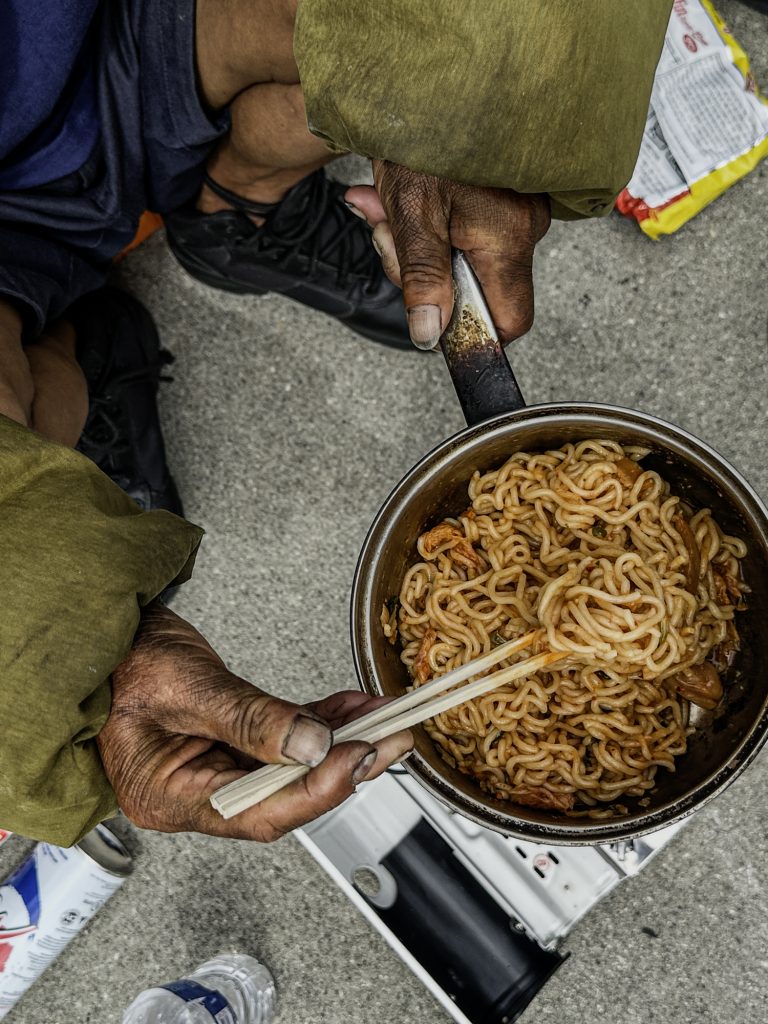
When approached by the Korea Daily’s team, his response was as direct as it was unsettling. “I’m on crystal,” he admitted, referring to methamphetamine, as he lit a pipe with trembling hands. Our efforts to engage him further only led to garbled, incoherent responses.
In the unforgiving concrete jungle of Koreatown, Pastor Lee found solace in a simple comfort: Korean-style instant ramen noodles.
Having lost most of his teeth to years of drug abuse, the soft noodles became more than just sustenance; they were a final link to his cultural identity and a reminder of easier times.
One day, as Lee was preparing to eat ramen at his tent, the Korea Daily’s investigative team visited. He paused to pray, saying, “May God bless everyone who helped bring this food to me.”
Lee’s plight, briefly chronicled in a previous Korea Daily article, caught the attention of the mayor of Los Angeles.
“When Mayor Karen Bass heard the pastor’s story, she personally visited him and promised to help him get into a shelter,” said Kim Ji-eun, a communications official for the mayor’s office.
Paradox of homelessness

This personal intervention was part of the city’s broader “Inside Safe” initiative, an ambitious program aimed at moving LA’s growing homeless population off the streets and into motels or shelters. A cornerstone of Bass’s administration, the program seeks to address the root causes of homelessness by providing not just shelter, but also food and support services.
On June 18, city officials arrived at Lee’s makeshift dwelling. The pastor packed his worldly possessions into a few bags and boarded a bus bound for a shelter. Dressed in the cleanest suit available to him, Lee managed to smile. Little did anyone know that this image would become Lee’s final portrait.
After just one day in the shelter, Lee returned to his familiar haunt in front of Central Lutheran Church. The paradox of homelessness became starkly evident: for many, especially those grappling with mental illness, the freedom of the streets often feels more bearable than the perceived challenge of following basic shelter rules and schedules.
When we questioned Lee about his decision to leave, our team was met with incoherent responses. Lee’s words were slurred and his thoughts scattered. City workers, undeterred, continued their outreach efforts. On June 25, Lee once again entered a shelter, only to depart after 24 hours. “He didn’t like the rules and regulations,” said Kim from the mayor’s office.
It was later revealed that Lee, who was not fluent in English, felt uncomfortable when not surrounded by Korean speakers.
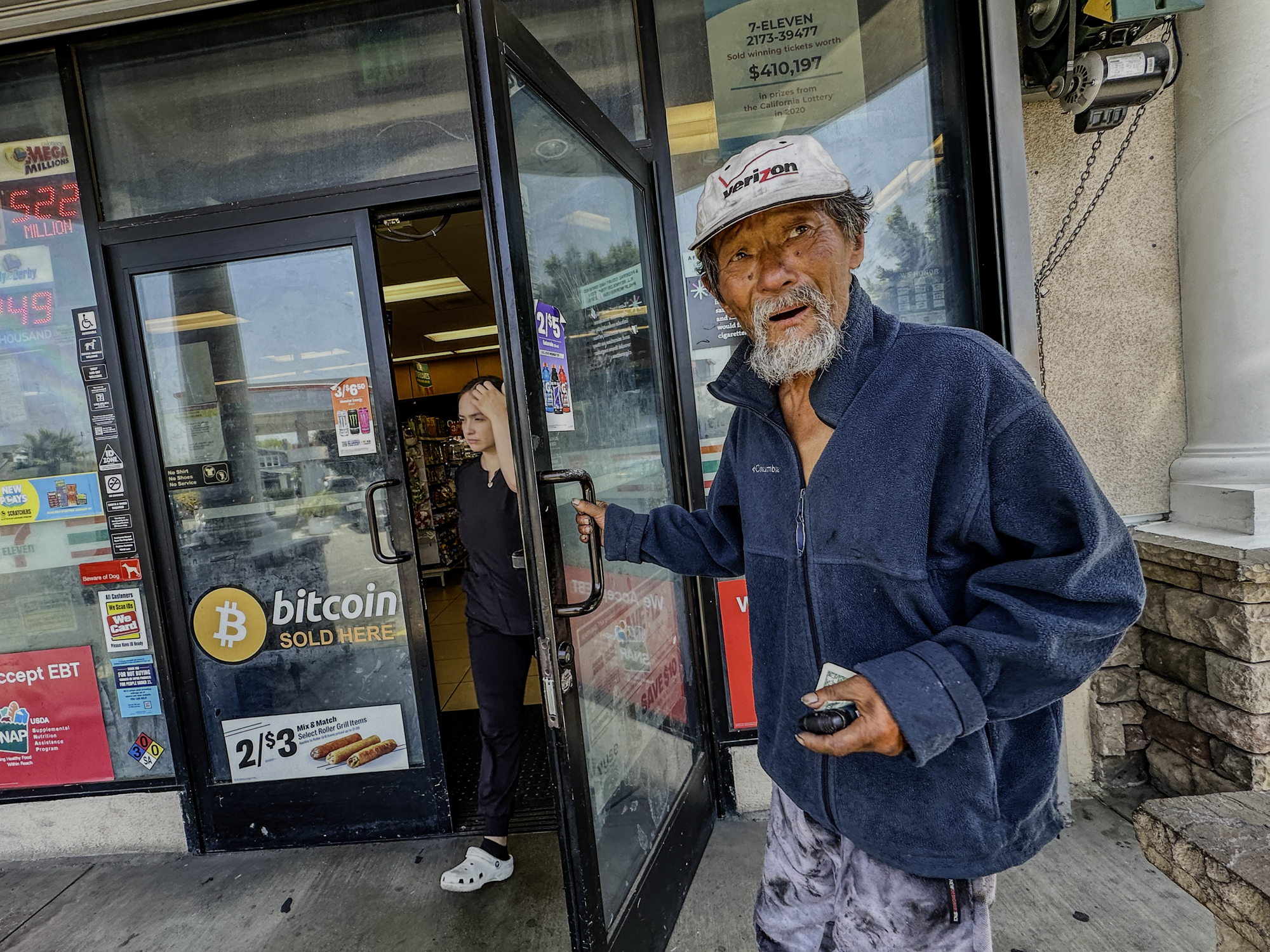
In a last-ditch effort to reach Lee, the Korea Daily’s team made a personal appeal: “Pastor, you should stop using drugs, take a shower with clean water, eat hot food, and sleep in a soft bed instead of on the hard streets.”
After a long, pensive silence, Lee responded. “Me too, I want to go into a shelter, I’m tired, I’m so…” His voice trailed off. For this once-respected, now-emaciated pastor, the desire to live had become a luxury he could no longer afford.
As the city grapples with drugs and homelessness, the fate of individuals like Pastor Lee hangs in the balance, their lives a testament to the resilience of the human spirit and the devastating power of addiction.
A Lonely Death
In July, a phone call came into the Korea Daily’s newsroom.
“Pastor Lee Kang-won is dead,” said Rev. Kim. “We don’t know how he died yet, just that he’s gone.”
An immediate investigation into the Los Angeles County Department of Medical Examiner’s records revealed the details: case number 2024-10744. Pastor Lee had passed away on July 5, 2024, at the age of 69. For nearly a week, his death had gone unnoticed, a haunting reminder of the isolation that affects the city’s homeless community.
The autopsy report revealed that the cause of death was attributed to the “effects of methamphetamine.” The place of death was listed as a “tent.”
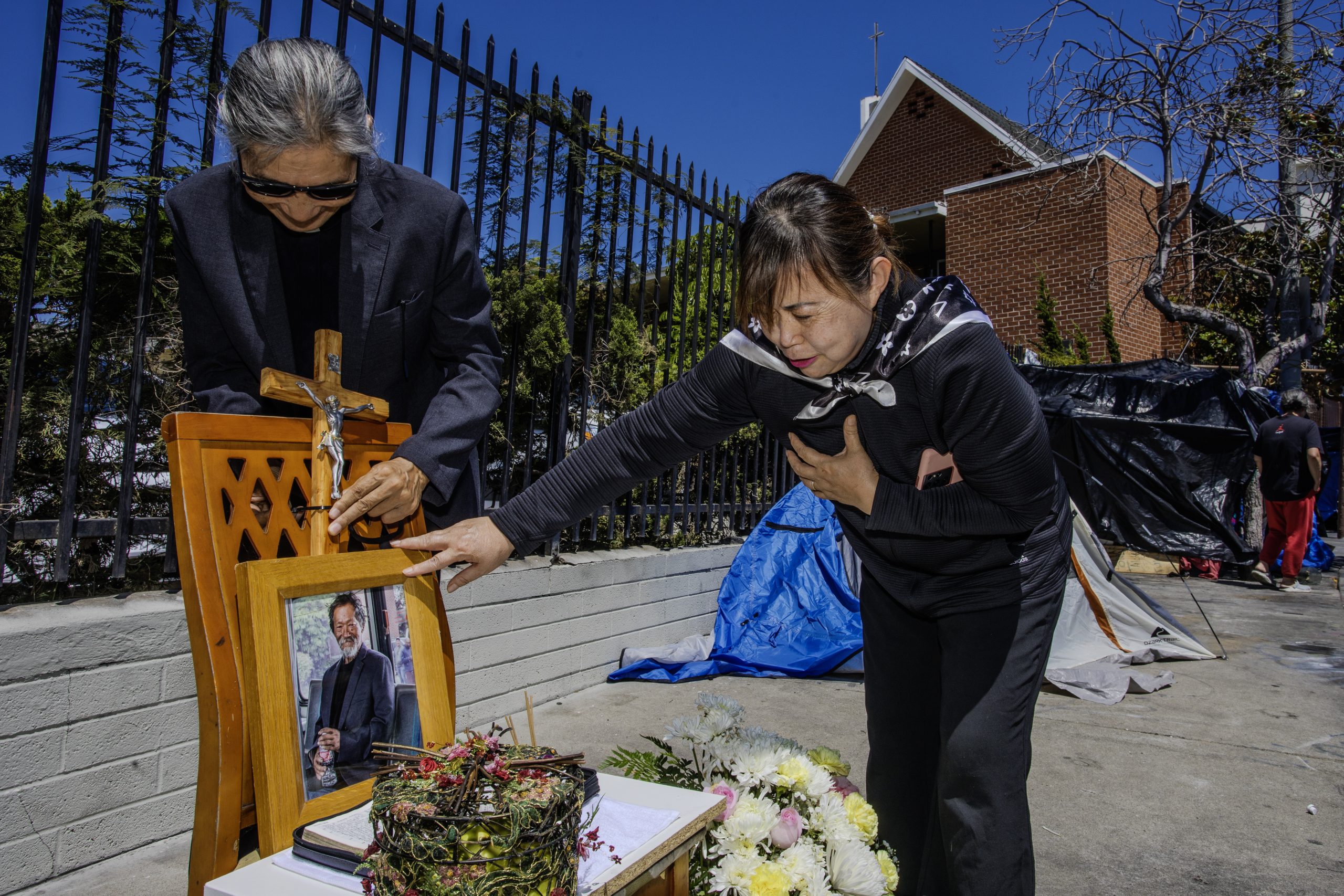
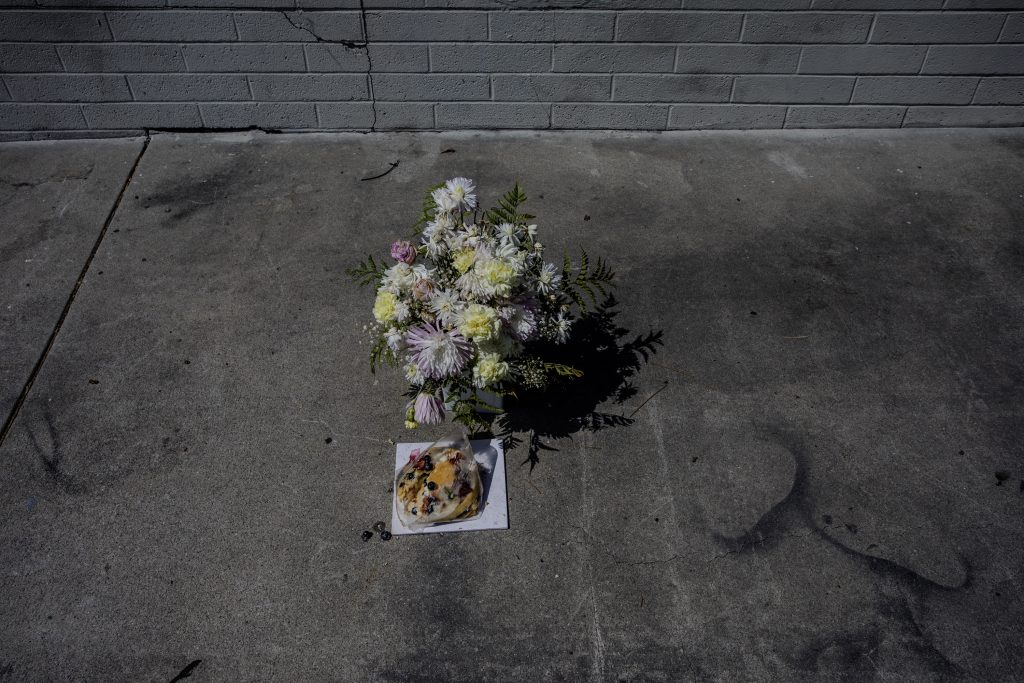
Shin added, “We didn’t realize it was Pastor Lee since he had died in someone else’s tent. If I had known who it was, I wish I hadn’t gone to see the decomposing body.”
A Modest Farewell
On August 2, mourners gathered at Rev. Kim’s shelter to honor Pastor Lee’s life. Many of the funeral attendees had also struggled with homelessness.
The people gathered at the funeral home greeted the room with either indifferent expressions, as if death was not unfamiliar to them, or with looks of acceptance.
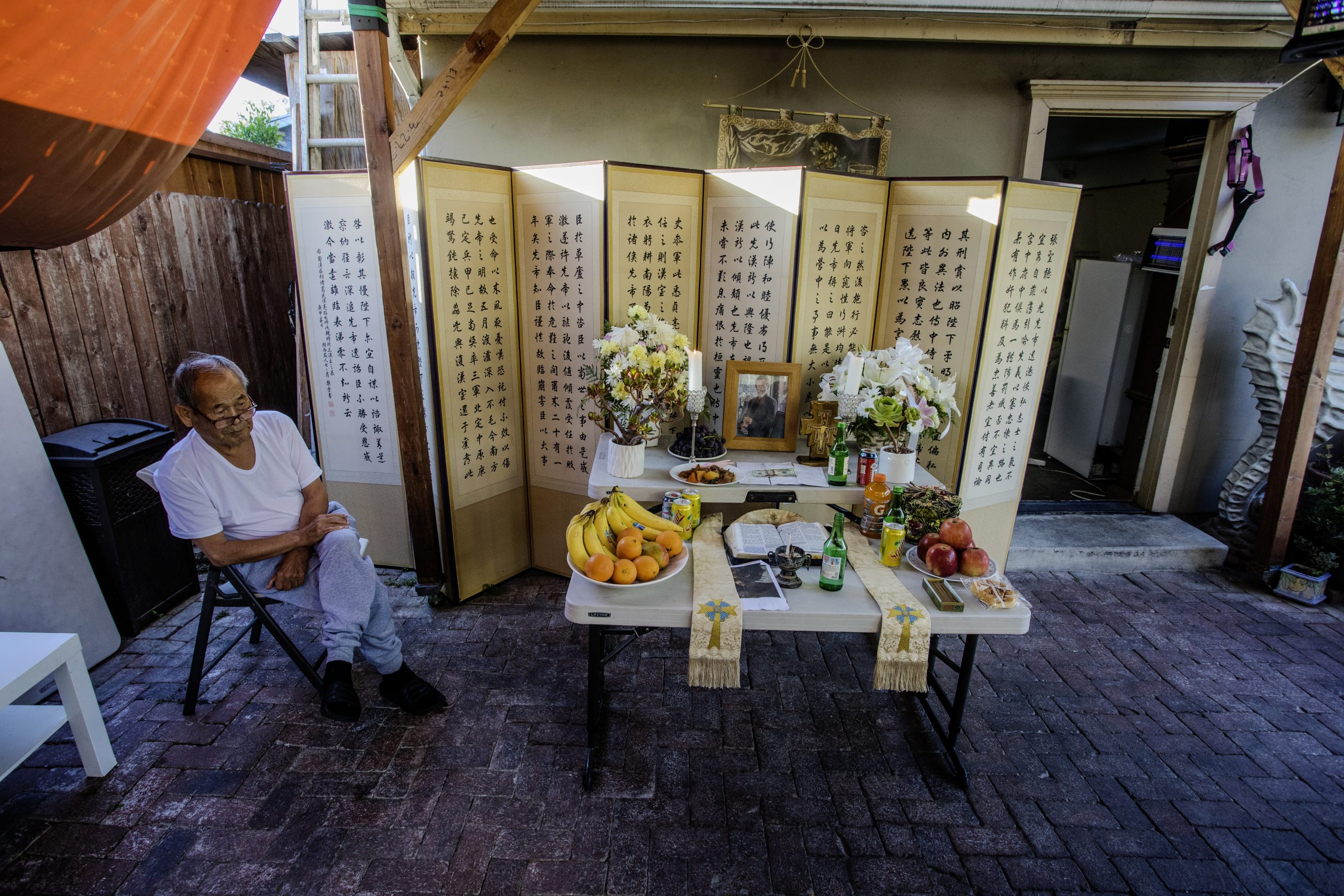
The service, though rooted in Christian tradition, embraced Korean Confucian customs. A makeshift shrine bore witness to Lee’s life: a well-worn Bible stood alongside cigarettes and fruit, while a bottle of soju—the Korean spirit—served as a reminder of his heritage. Attendees contributed a small collection of cash, collected in front of Lee’s memorial photograph.
“We had to make do with what we had,” Rev. Kim said, his voice thick with emotion. “In our tradition, we offer the deceased’s favorite foods, but we could only use what was available at the shelter.”
Choi Kwang-ok, who had once received help from Pastor Lee and now assists other homeless individuals, delivered a eulogy, saying, “Lord, we are sending a sinner to you, our God… Lord, Pastor Lee Kang-won comes to you now with a broken and battered body. He, who was a pastor, father, and husband, ascends as a child of God. Please guide him so that he may never be lost again.”
Before his passing, Lee once told our team, “Don’t call me homeless. Heaven is my home, and our Lord Jesus Christ is my savior.”
As the city moves forward, the memory of Pastor Lee Kang-won challenges us to confront the harsh realities faced by thousands who call the streets of Los Angeles home, urging us to find more effective ways to protect and support those most in need.
“He led me to accept Jesus,” recalled Kim Woo-sik, a former resident of the pastor’s shelter. “When I was struggling with drugs, I found refuge in the pastor’s shelter. Rest in peace, pastor.”
Shin, who lived near Lee in his final days, said, “I don’t have many positive things to say about him because I thought he had mental issues when we met. But isn’t it just so sad to see someone die before fulfilling their destiny?”
